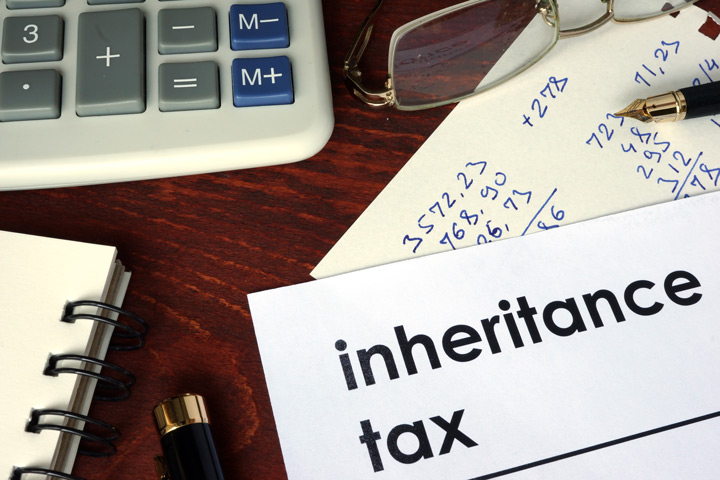
Inheritance tax can be paid in life or in death but is generally payable on the estate of someone who has died on their property, possessions and money.
Inheritance tax is payable at 40% on the value of the estate above a £325,000 threshold known as the nil rate band that is currently fixed until April 2028.
There are a number of reliefs and exemptions available to help mitigate against inheritance tax on death.
With property prices at an all time high it is important to know how you can apply these to your estate to reduce the amount of tax paid on death.
Exempt gifts
A number of gifts are exempt from inheritance tax in life and on death. Probably the most important is called “spousal exemption”. It will allow you to pass all of your assets on death to your surviving spouse or civil partner free of any inheritance tax provided you are both domiciled in the UK.
However, simply gifting all your assets to your surviving spouse may not be the most tax efficient strategy when considering inheritance tax. On death of the surviving spouse there would generally be a larger inheritance tax bill to pay as they now own all their former spouse’s assets.
It may make sense to gift assets in your lifetime to help mitigate against any eventual inheritance tax bill.
The 7 year rule
Most gifts made to other persons (such as your children) in your lifetime would be classed as a “potentially exempt transfer “PET”. Therefore, provided you survive 7 years from the date of the gift it would fall out of your estate for inheritance tax purposes. However, if you don’t survive 7 years from the date of the gift it will fail and be added back to your estate for calculating inheritance tax. Taper relief can apply so that you start to reduce the inheritance tax that would potentially be payable on the gift once you survive 3 years.
Problems can arise with other taxes that could be potentially payable on the gift itself. For example, if you were to gift a property to your adult child it may help your inheritance tax position but unfortunately capital gains tax may be due within 60 days on up to 24% of the capital uplift of the property since you purchased it.
Care needs to be taken with planning any substantial gifts in your lifetime to ensure it does not trigger an unwanted tax charge.
The residential nil rate band
In April 2017 the government created the residential nil rate band (RNRB) which is an additional allowance for passing down the family home to direct decedents (child, step-child, adopted child or foster child) and lineal descendants. Currently the allowance is £175,000. There are however some complicated rules for this residence nil rate band. For larger estates the allowance is reduced, and it cannot be used for a buy to let property. There are a range of other rules that this entails which one of our team can talk you through.
When is Inheritance Tax payable?
Inheritance tax generally has to be paid within six months of the date of your death. The tax is normally paid from your estate and interest will be charged by HMRC on any late payment. Inheritance tax may also be payable on any gifts made in the last 7 years.
In most instances your estate will need to be valued and several forms sent to HMRC before probate can be granted and the assets distributed to your beneficiaries.
How we can help
The are a number of steps to consider when creating an inheritance tax plan to ensure you are getting the best outcome when you pass your assets on death.
The first step would be to calculate the current value of your estate and determine the potential inheritance tax bill on death.
The second step would be to perform some basic financial planning to see if there is a possibility to gift any assets in your lifetime in order to reduce the value of your estate on death.
If you can potentially gift assets in your lifetime we would advise on the tax consequences of making such gifts and provide a strategy on how they can be gifted in a particular way via the use of a trust or other means to prevent any other taxes being paid on the gift.
We can then help you execute your tax planning strategy with the use of other professionals such as legal advisers of which we have strong business relationships with. You would be able to access reasonable rates for their services.
Finally we can review or help you create a will and make suggestions on how it can be drafted to further reduce your inheritance tax on death via the use of will based trusts or other appropriate ways. At Elite we have staff that have been specifically trained in will writing.